- Tom Johnson
Survivor shares story to highlight need for organ donors from minority community
For Charlyce Simmons, National Minority Donor Awareness Month is not just a calendar event, it is personal and a reminder of the miracles and challenges she has faced in her own life. She was only a high school student when she learned she had a life-threatening medical condition.

“Around the age of 14, I began to become ill,” Simmons said. “My mom took me to the doctor, and they began to explain to my parents that I had kidney failure.”
The diagnosis led to dialysis and eventually a lifesaving kidney transplant at AdventHealth Transplant Institute when she was just 19 years old. “I did not even realize the effect it would have [on me] for the rest of my life,” said Simmons.
For Simmons, the transplant journey did not end there. How long a kidney lasts is different for each person and a small percentage of recipients will need a second kidney. “I had that (first transplanted) kidney for 20 years. (And then) I got my second transplant May 10, 2023.”
Her personal experience inspired Simmons to share her story and encourage more people to give the gift of life through organ donation, particularly among minority communities. “We have a big issue with minorities [not] wanting to be donors. When you look at the (transplant waiting) list, minorities are the ones who need most of the donations,” said Simmons.
According to the United Network for Organ Sharing there are more than 100,000 people – about the capacity of Daytona International Speedway – waiting for transplants in the U.S. Minorities make up 60% of the National Transplant Waiting List, and only 32% of donors. This means that many people of color face longer waiting times and higher mortality rates while waiting for a lifesaving transplant.
“There are a lot of myths, and I believe that the more education the better,” Simmons said. National Minority Donor Awareness Month was created to raise awareness of this disparity and encourage more people of color to register as donors. Misinformation plays a role in the shortfall.
Simmons created Michal’s Hope, in part, as a response to the sobering statistics and to create awareness. The non-profit helps patients in all stages of renal failure, as well as their families. Simmons' story serves as a powerful reminder of the urgent need for increased awareness of organ donation in minority communities.

“Organ donation is a selfless act that can save and improve countless lives. It is crucial that we raise awareness and dispel myths, particularly in minority communities, to bridge the gap between the need and the supply of organs and tissues,” said Bobby Nibhanupudy, MD, medical director for abdominal transplantation at AdventHealth Transplant Institute, and medical director of OurLegacy, the federally designated organ procurement organization for 10 counties in east Central Florida.
National Minority Donor Awareness Month is a great opportunity to learn more about organ donation and how it can save and improve lives. By registering as a donor and spreading the word, you can help bridge the gap between the need and the supply of organs and tissues. Learn more at Donate Life America.
Recent News
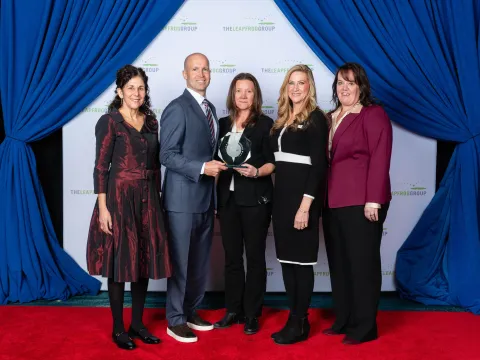
AdventHealth Avista Recognized as a Top Teaching Hospital in Colorado for Patient Safety and Quality Care
For patients and families, feeling safe, heard, and well cared for is foundational to healing. That commitment to whole-person care is why AdventHealth Avista has been recognized as one of Colorado’s...

Phoebe Carpenter, APRN-CNP, joins AdventHealth Medical Group Family Medicine, Internal Medicine & Pediatrics at Curtis Parkway
AdventHealth is pleased to announce that Phoebe Carpenter, APRN-CNP, has joined AdventHealth Medical Group Family Medicine, Internal Medicine & Pediatrics at Curtis Parkway.

Pulmonologist joins AdventHealth Waterman
From nutrition and ICU to advanced bronchoscopy, Dr. Alba Rivera-Díaz brings bilingual, whole-person lung care to Lake County.
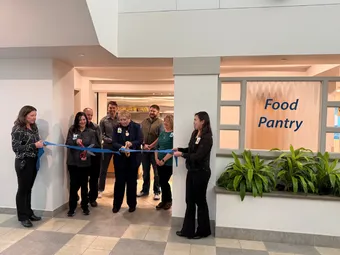
AdventHealth Avista opens food pantry to support community health
AdventHealth Avista has taken a significant step toward addressing food insecurity, a key priority identified in its Community Health Needs Assessment by opening a food pantry on its first floor. This...

AdventHealth Porter Earns COPPER Designation, Strengthening Pediatric Emergency Care
AdventHealth Porter is proud to announce that its Emergency Department has earned the Pediatric Advanced COPPER designation, a significant milestone that reflects a deep commitment to providing safe...

Three AdventHealth hospitals in Florida’s Volusia and Flagler counties earn top Leapfrog honors
Residents of Volusia and Flagler counties now have national confirmation of something many rely on every day: safe, high-quality hospital care close to home.
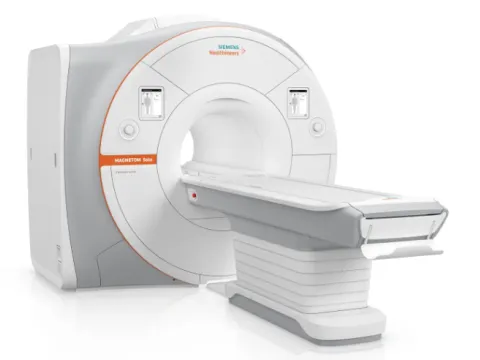
AdventHealth DeLand investing in next-generation MRI technology to enhance patient care
AdventHealth DeLand will soon install a new MRI system designed to deliver faster exams, sharper images and a more comfortable experience for patients in West Volusia.

Innovative new procedure offers hope for heart transplant candidates at high risk for rejection
Innovation at AdventHealth is driven by one purpose: helping people heal in body, mind and spirit.

The hidden cancer one clinician caught – and the process improvements she says matter most
Shana Vongkhankeo, APRN, discovered an unusual thyroid enlargement during a routine physical for a teenage patient, leading to a life-saving cancer diagnosis that highlighted how being fully present...
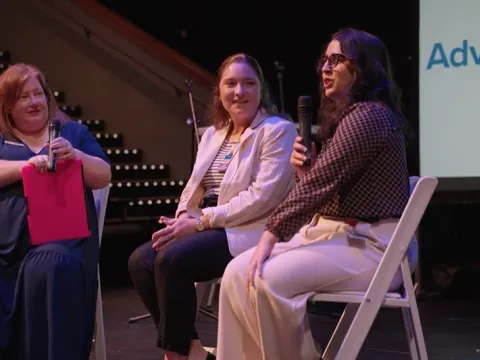
AdventHealth debuts first-of-its-kind Performer Health Program in Central Florida
AdventHealth is launching the Performer Health Program, a first-of-its-kind initiative in Central Florida focused on addressing the unique health needs of artists and performers.

AdventHealth Waterman strengthens access to expert specialty care with expansion of Mount Dora medical plaza
Second floor buildout adds orthopedics, sports medicine, women’s health and heart care for Lake County.
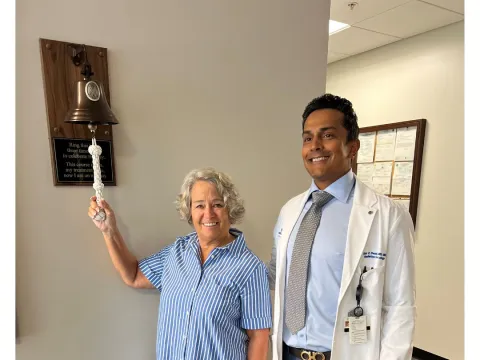
Expanding hope through innovation: AdventHealth advances cancer care across East Florida
Cancer touches nearly every family, and in Flagler, Lake and Volusia counties, the demand for timely, advanced care keeps rising. AdventHealth’s East Florida Division, which includes seven hospitals...
